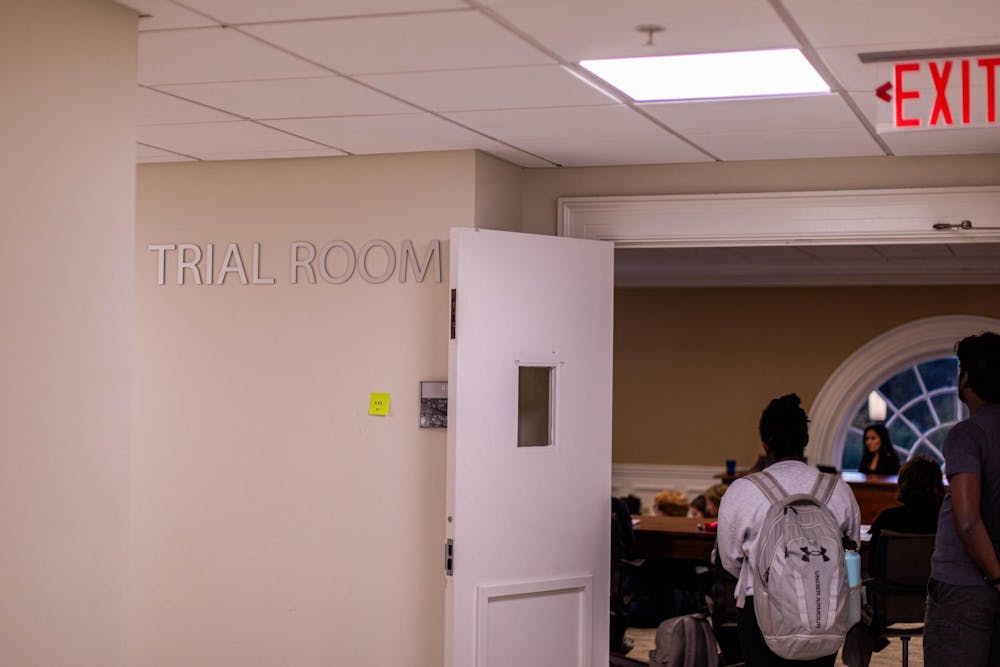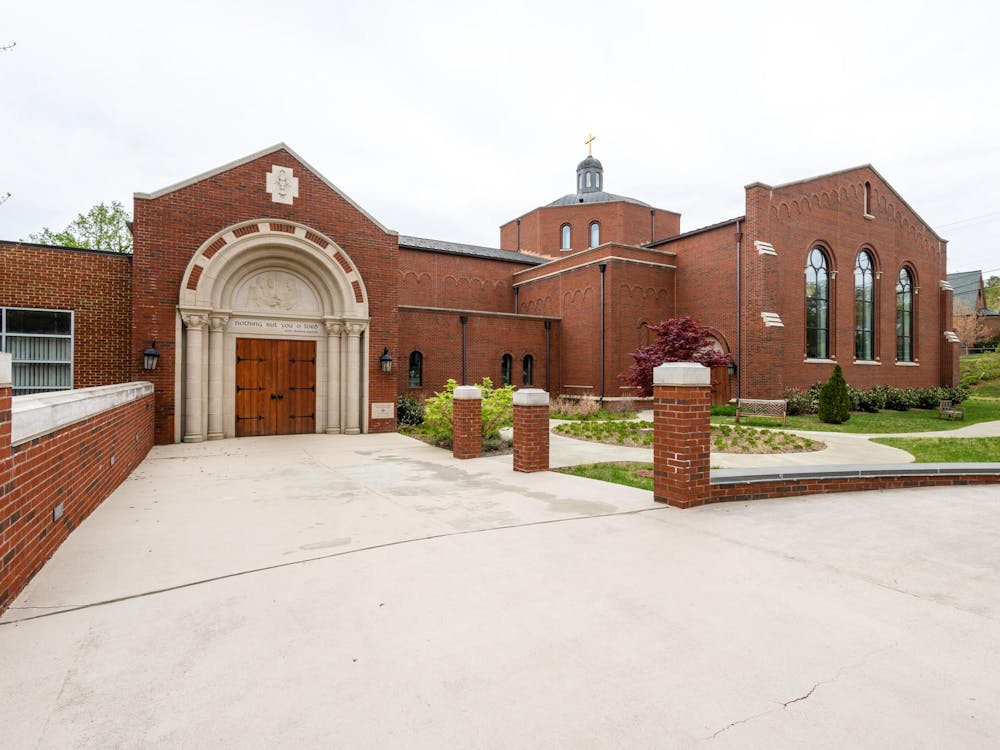The University Judiciary Committee has already adjudicated 38 cases since its term began April 1. Violations of Standards 2 and 6 — threats to health and safety of students and violations of University policy, respectively — make up a large share of the cases, according to the UJC’s Executive Committee. The details of organizational cases will be made public in December with the release of the semesterly statistics report.
Comparing this term to ones from the past few years, Harper Jones, UJC chair and fourth-year College student, noted that the 38-case figure is abnormally large for this point in the term. In fact, some terms never reach that number of cases, and this term still has four months remaining. In the Fall 2024 semester alone, the UJC has adjudicated 20 cases — 18 against individuals, two against organizations — as of Nov. 19.
Despite the increase in cases, Jones said she was pleased with the UJC’s ability to handle this increased case load.
“[It’s] exciting and I think [it] proved to all of us that even as we get more cases, we're still able to handle an elevated caseload,” Jones said.
Jones added that when case numbers fluctuate between terms it is not necessarily a sign that there are more violations, just that the volume of reports has increased, which she said is a sign of engagement with the UJC.
“I think the big push in the past three or four terms is really to get in front of students and administrators and present the Committee in a way that people are continuously willing to engage with our process,” Jones said. “We've seen considerable success with that in the past several terms.”
With the high volume of cases, processing times have increased slightly from 27.17 days in Spring 2024 to 31.36 days this semester, excluding breaks. Still, the 31.36 days is a significant decline from Spring 2023, when the average time to process a case, excluding breaks, was 97 days.
Allison McVey, vice chair for sanctions and third-year College student, said the increase in cases is partly due to the volume of hazing cases the UJC has adjudicated during this term. In addition to cases being brought against an entire organization for hazing, separate cases can be brought against individuals as well. Hazing cases typically implicate a large number of individuals at one time according to McVey, thereby increasing the total number of cases.
Alongside an increase in cases, the Committee saw increased interest during recruitment. The Committee received 213 applications during the Fall 2024 recruitment cycle, higher than the 138 received in Fall 2023 and more than 2.5 times the number of applications in Fall 2022.
The Committee received 34 applications for the educator pool this recruitment cycle, higher than the 11 received last year and the four received in Fall 2022. Melinda Wong, vice chair for trials and fourth-year Batten student, cited the higher recruitment numbers as demonstrated interest in improving the Committee’s internal oversight.
Other large spikes in applications compared with last year are in the investigator pool and the First Year Judiciary Committee — the branch of the UJC that handles cases involving first years — with each receiving 104 applications.
Alongside the higher number of applications, acceptance rates have remained more or less the same. The overall acceptance rate was 39 percent, higher than last year’s 34 percent. The Committee accepted 34 percent of counselor applicants, a 10 percentage point increase from the previous year, the FYJC acceptance rate was 12 percent, a six percent decrease from Fall 2023, the investigator acceptance rate was 22 percent, a three point decrease from Fall 2023 and the educator acceptance rate was 47 percent, a 11 point increase from Fall 2023.
Wong attributed higher interest in the UJC to the bolstering of the educator pool by assigning more responsibilities to that role. The educators are responsible for informing students about the UJC and sitting in on trials to give the executive committee an impartial look at these proceedings, a way to provide internal oversight.
Jones said the educators have not previously sat in on trials, but will now do so for the first time, giving UJC more oversight in typically private proceedings.
“[The educators will] help on our internal committee improvement and do a lot more outreach that, in years past, has been undertaken by members of exec,” Jones said.
The educators’ outreach will be aided by increased funding as well. Jones said UJC received $20,000 from President Jim Ryan’s office this year for outreach efforts and co-sponsorships, events put on by other organizations on Grounds that the UJC provides funding for to boost their reputation. That contribution from Ryan’s office will continue the next two years as well to total $60,000.
Final data about case counts and the details of organizational cases will be published in the UJC’s Fall 2024 statistics report, which is expected to be made public in early December.







